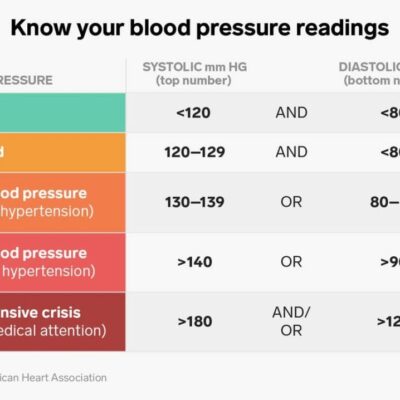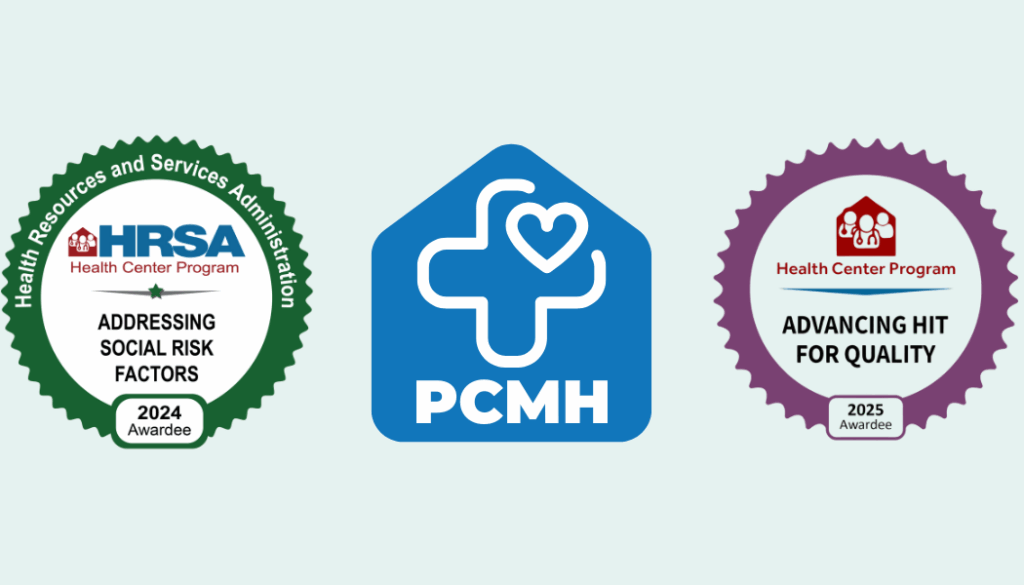Did you know? Hypertension (high blood pressure) increases the risk for heart disease and stroke, two of the leading causes of deaths for Americans. Tens of millions of adults in the United States have high blood pressure and many do not have it under control.
Most often, high blood pressure has no symptoms, so the only way to know you have it is to have your blood pressure checked by your primary care provider.
Below is a chart of normal, elevated and high blood pressure readings. If you monitor your blood pressure at home and you find that your readings are consistently high, seek care from your medical provider.

Whatever your age, you can take steps every day to help keep your blood pressure in a healthy range.
- Measuring your blood pressure is an important first step toward keeping a healthy blood pressure. Because high blood pressure typically has no symptoms, monitoring your readings is the only way to know if your blood pressure is high.
- Manage diabetes. Most people with diabetes also have high blood pressure. If you do have diabetes, monitor your blood glucose levels and talk with your medical provider about treatment options.
- Take your medicine. If you take medicine to treat high blood pressure or other health conditions, follow your provider’s instructions carefully. Stopping medications without first consulting your medical provider can lead to serious health consequences.
- Lifestyle changes. You can help lower your blood pressure by being physically active, eating a healthy diet and making other lifestyle changes (stop smoking, lower alcohol intake, etc.)
- Talk with your Doctor. Schedule regular appointments to monitor your health conditions and blood pressure readings.
